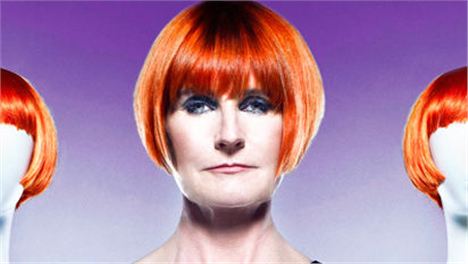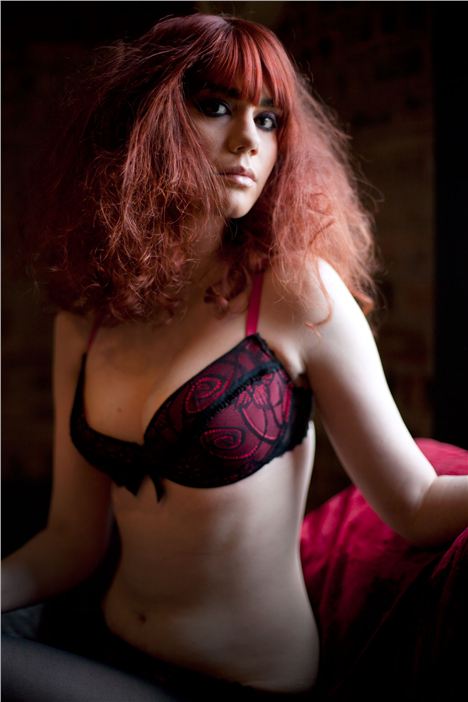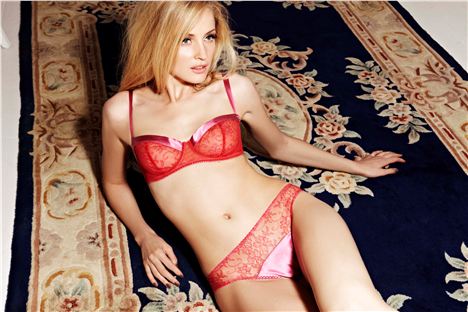I HAVE no idea where my knickers come from. Their country of origin, I mean. I know where they were bought, and for the most part I remember their brand names, but where they were made? Completely clueless.
“It’s very sad that we’ve lost a lot of what Britain was, how important Britain was to the world, not just as consumers.”
But ignorance such as mine must come to an end, or so says Mary Portas, who is bringing a new series to us via Channel 4 that makes it clear we must no longer be cavalier about knicker-buying, or buying in general, for that matter.
 Mary's Bottom Line Host Mary Portas
Mary's Bottom Line Host Mary Portas
Buy British, and support the hard-working women (and men) of Middleton, will be the message of Mary’s Bottom Line - a three part series that will debut on March 15.
Mary Portas is going to try to give a face to her knickers, a dozen faces for that matter, not to mention her own carrot-crowned one. There’s her unskilled labour force, recruited to make the knickers, as well as the knicker-making professionals hired to train them.
The suspense intended: will Mary lead the team to glory as they learn the ups and downs of sewing underthings? Will Mary find stockists for her line? (I can answer the second with certainty, because this is Mary Portas with television cameras, after all.)
But when her team asks the seemingly innocuous question, ‘So when and why did we stop buying British?’ (taken from Channel 4’s website), she should be quite careful not to subtly discount the British companies who continue to manufacture in the country today, along with the millions of people they employ.
Mary Portas isn’t inventing British manufacturing, and don’t say that to someone who’s been doing it for years, such as Camilla Blois - owner of Manchester-based lingerie company, Lucile. Camilla is a strong believer in the marketing power and commercial viability of being “Made in Britain”.
“Being British is the core of our brand and I would never consider moving my manufacturing out of the country,” she said.
Unlike doomsayers who compare UK overhead costs with China’s cheap labour and see nothing but red, she resists being pessimistic. Manufacturing in China, she said, is done en masse with minimum orders of a thousand, while British brands afford better quality and cater to a more exclusive, niche market.
“The more manufacturing done here, the better,” said Camilla. “I have never felt that it’s dying out.”
Lesley Niezynski, owner of the single set of hands that make all the products of her lingerie company, Lilly Wiggler, is another strong believer in British branding, and wouldn’t consider expansion if it meant shifting her manufacturing elsewhere.
 Lilly Wiggler Red and Black Bra
Lilly Wiggler Red and Black Bra
“It’s very sad that we’ve lost a lot of what Britain was, how important Britain was to the world, not just as consumers.”
Mary Portas’ programme can only be good for companies such as Lesley’s and others that wave the ‘Made in Britain’ flag proudly.
“More people can see how things are made and why they cost might more,” said Lesley. “Hopefully we can keep the momentum going and bring more jobs back to Britain.”
Fleur of England, a brand of lingerie whose name leaves no question as to its nationality, produces its most luxurious collection in its own (eponymous) country, but has shifted four-fifths of its production to Portugal in the last two years.
 Fleur of England Love Balcony Bra and Brief
Fleur of England Love Balcony Bra and Brief
The move, said brand development coordinator Suzanne Foster, was unavoidable. “It was simply down to costs,” she said. “The whole product price would go up and we’re already a high-end product in a niche market.”
The effect of rising costs on small companies is related to the loss of large manufacturers, which makes producing in the country more expensive and sends more companies out of the UK in a vicious cycle. If Mary Portas and bigger companies spearhead bringing manufacturing back to the UK on a grand scale, then running factories here wouldn’t be as expensive.
“People are always really interested in what Mary Portas does, so we will see,” said Suzanne. “It’s really good that someone is bringing attention to this.”
Mary’s line, Kinky Knickers, has already launched (sorry for the spoiler), and getting them means we’re one step closer to knowing the people who make our knickers.
We’re not there yet, though.
It’s still uncertain whether this three part series and one feisty orange-haired extrovert can make a difference in British manufacturing, or if this burst of pro-manufacturing positivity will simply fizzle out.
But if anyone can do it, Mary can. Go Mary Go.
Mary Portas' series, Mary's Bottom Line, starts March 15, 9pm on Channel 4.
Follow Karen on Twitter @karenregn










